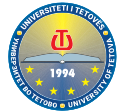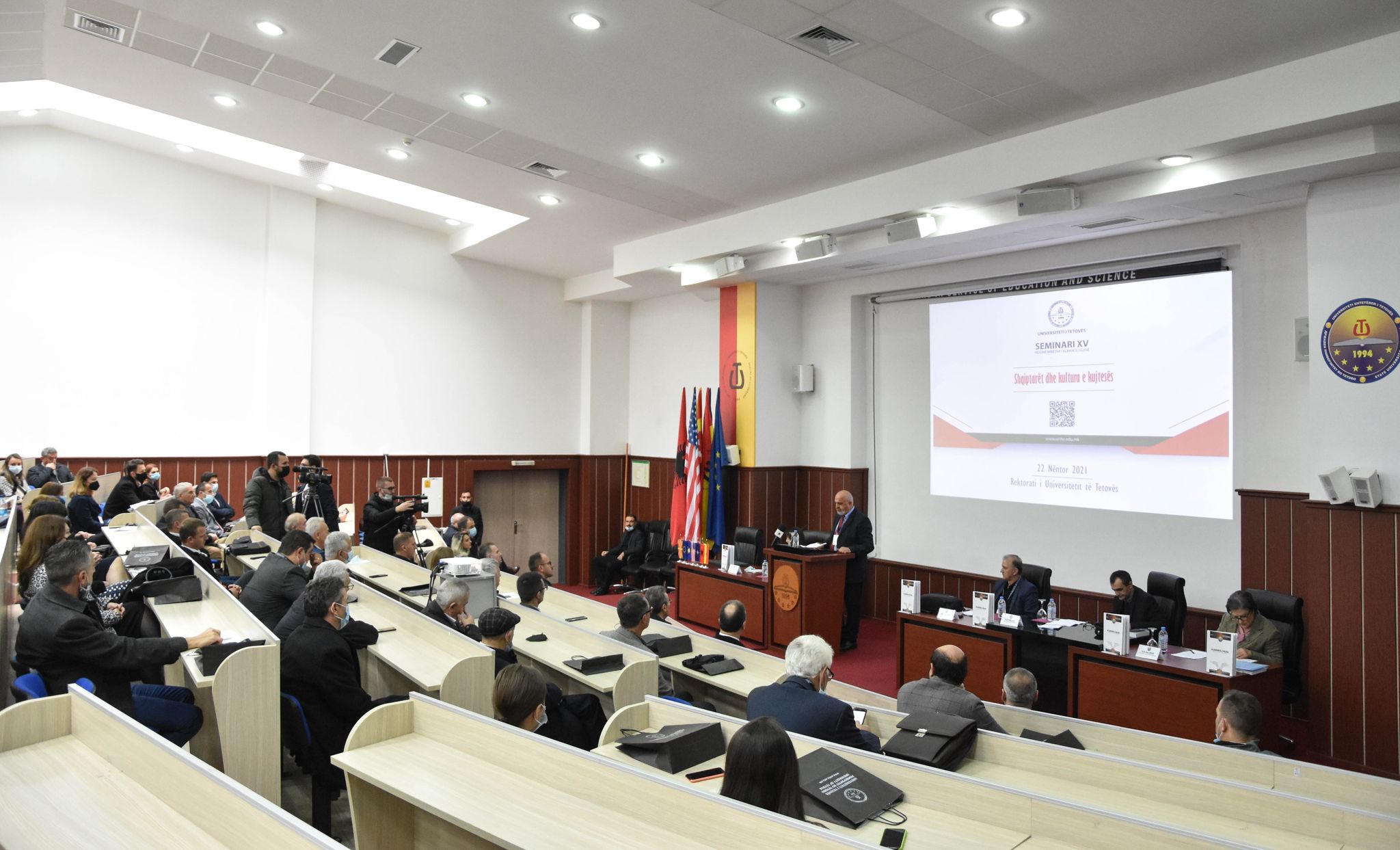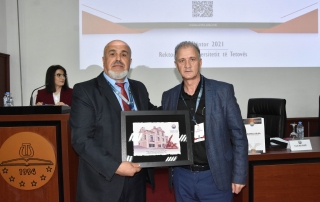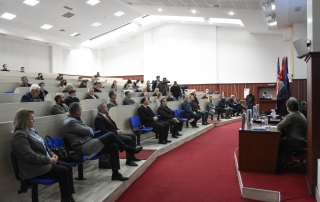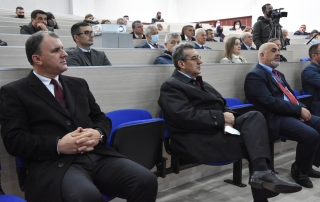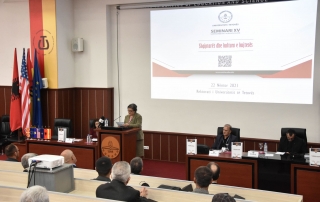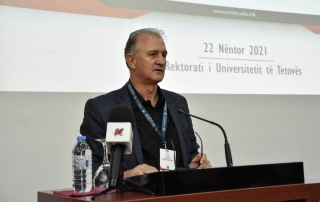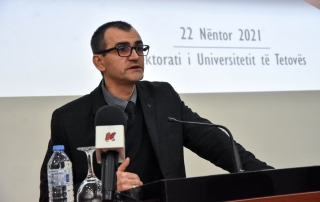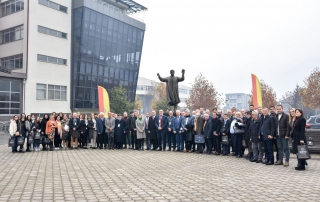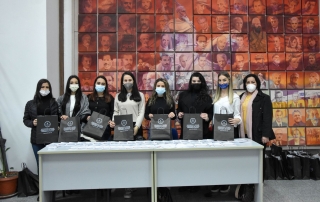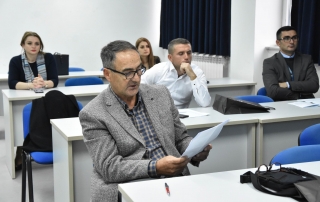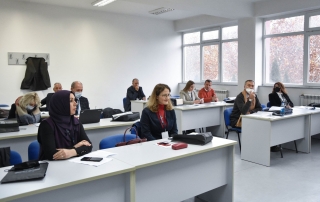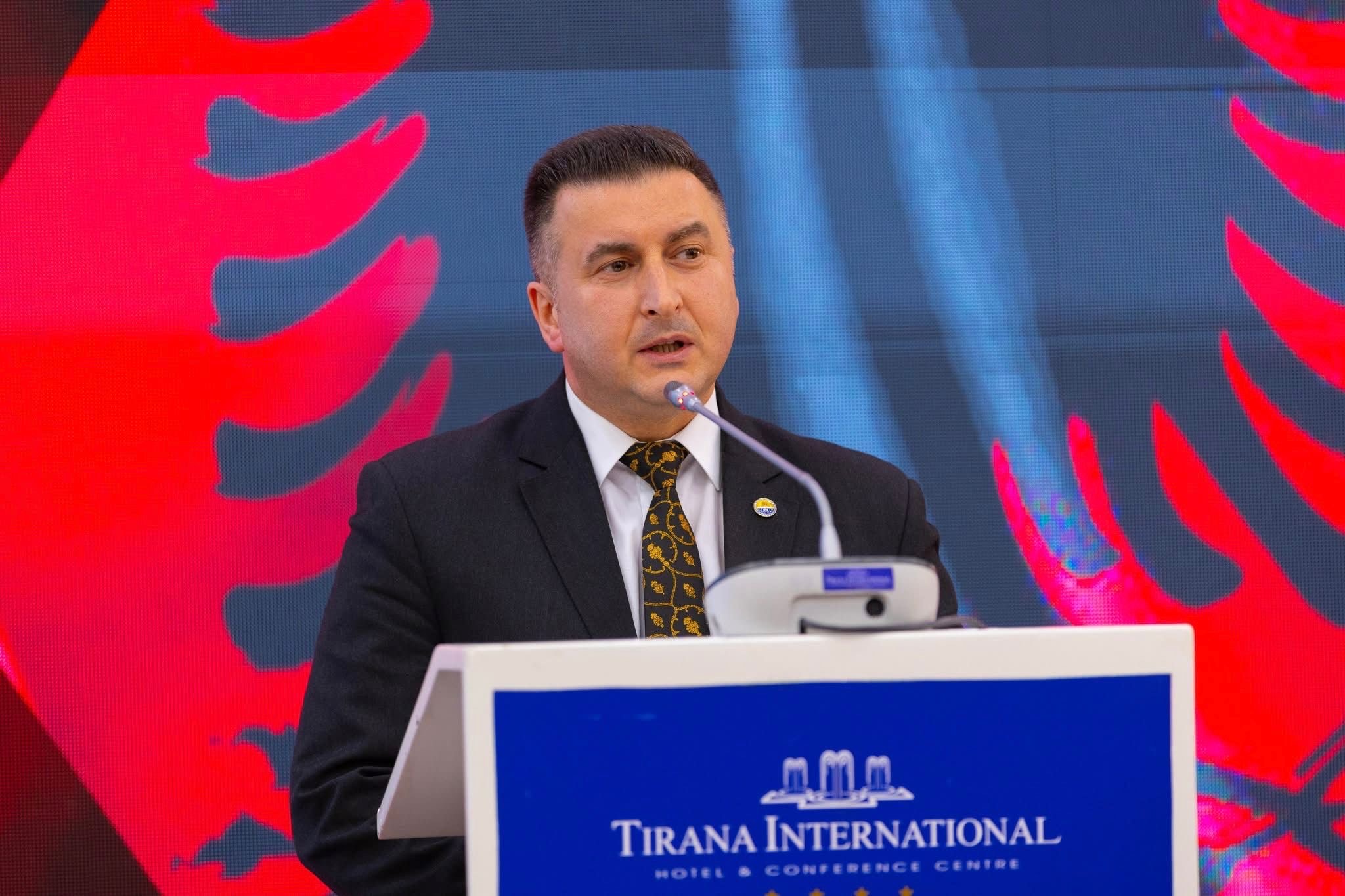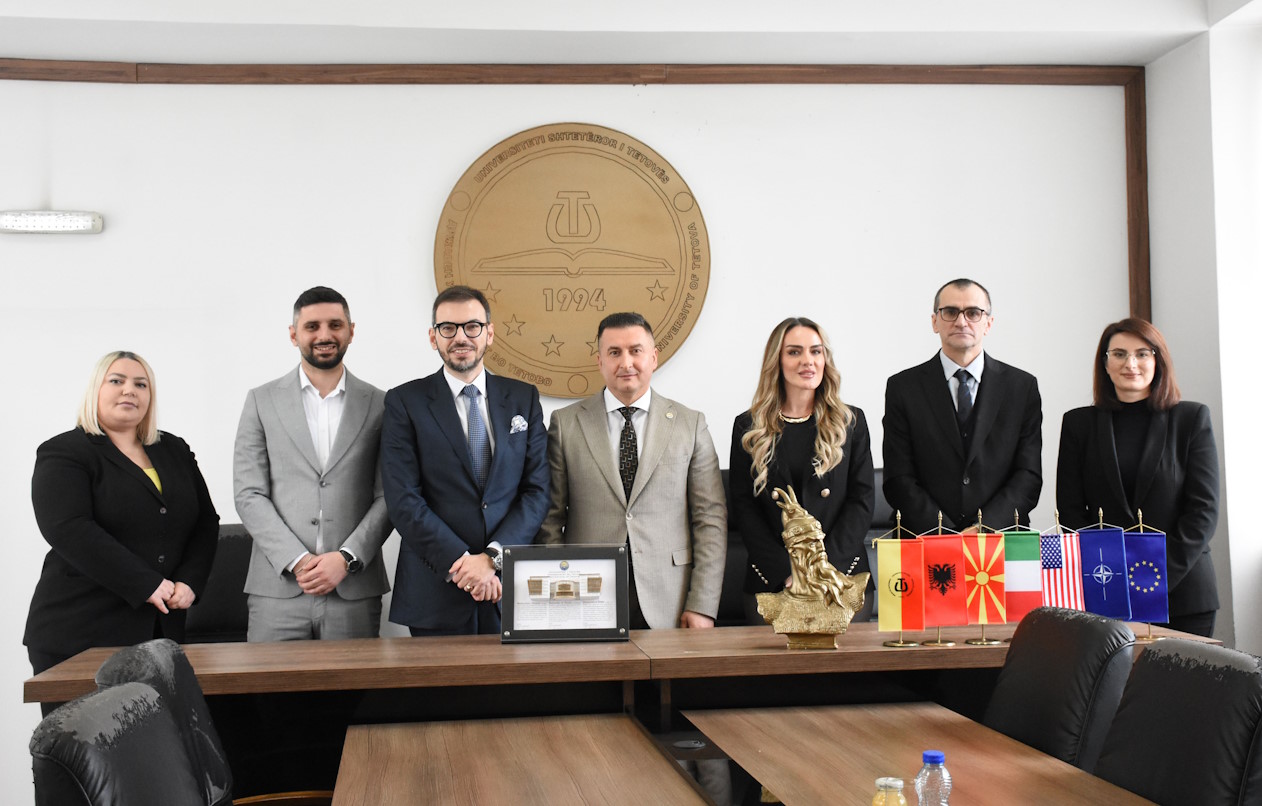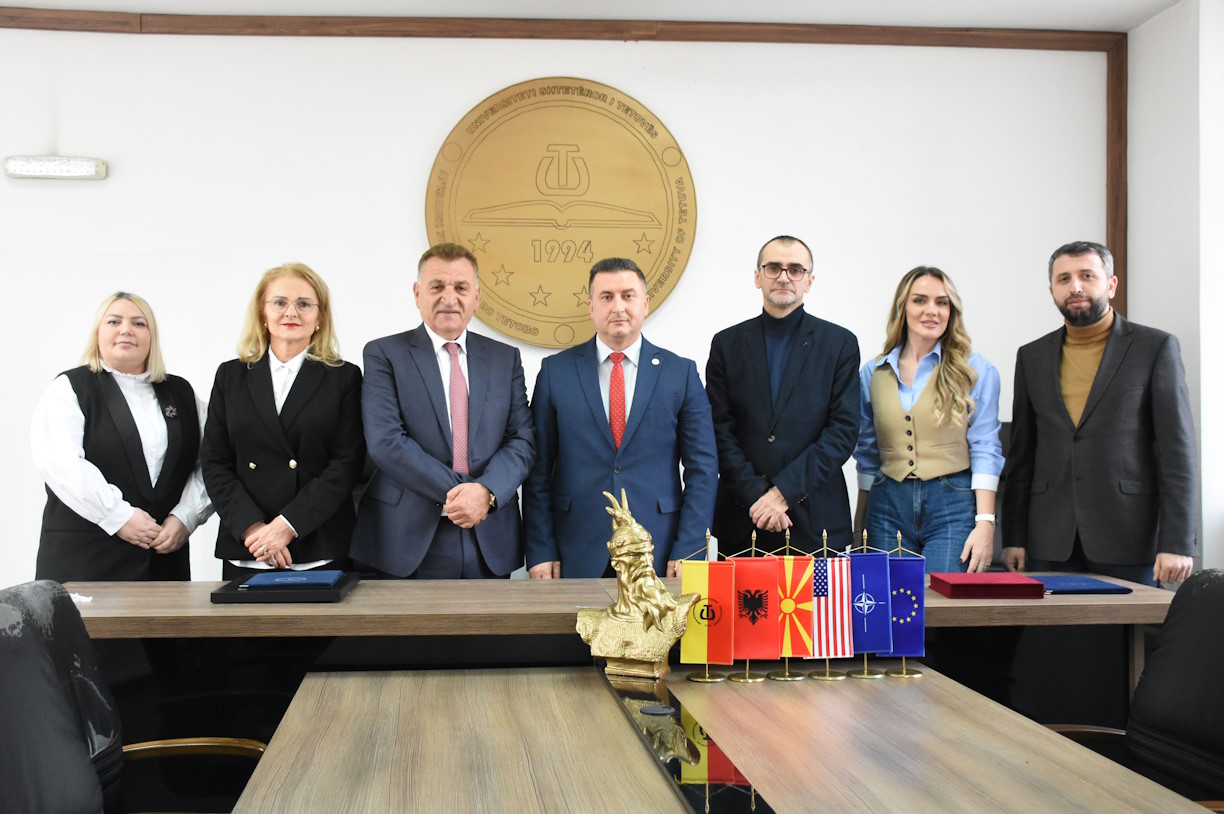“Albanians and the culture of remembrance” was the main topic of the XV International Seminar of Albanology that conducted today the works at the University of Tetova. In this scientific activity participated researchers of language, literature, history, ethnology, journalism, etc., who presented their works in five scientific sessions.
Vice-Rector for Science, Prof. Dr. Hazir Pollozhani, in his speech greeted the participants and said that this year the Seminar is organized on a special date in our history, exactly on the 113th anniversary of the Congress of the Manastir, the Alphabet of the Albanian Language.
This year’s seminar develops the proceedings with the topic: “Albanians and the culture of remembrance” a thesis which we believe that has encouraged researchers of this field to address topics of important value and scientific importance. The seminar of Albanology is a continuation and in the service of this goal with great humane and civilizing messages “, said the Vice-Rector for Science, Prof. Dr. Hazir Pollozhani.
He also said that holding the Seminar is of great importance, not only for our University, as a higher educational-scientific institution and its organizer, but it is important for the whole science of albanology. “The International Seminar of Albanology is the only scientific activity in the entire Albanian area that includes researchers from four fields of Albanology. The seminar at the same time is a scientific and a patriotic activity, which serves science, education and national culture. The objective of this seminar, now traditional, is to gather the most prominent figures of Albanology. “Science and knowledge, education and education of new generations, on a sound scientific basis, has been and will remain a primary goal and professional obligation”, said the Vice Rector for Science, Prof. Dr. Hazir Pollozhani.
Part of the panel was also the professor and at the same time the Scientific Secretary of the International Seminar of Albanology, Prof. Dr. Emine Shabani, who in her speech was focused on the anniversary of the anniversary of Congress of Manastir, the Alphabet of the Albanian language. In this solemn ceremony, the well-known researcher from the Republic of Kosovo, Prof. Dr. Naser Pajaziti, presented the scientific paper on semantic inaccuracies, stereotypes and deviations of the syntactic norm in new media.
Director of the Seminar of Albanology, Prof. Dr. Salajdin Salihu, stated that despite the difficulties that they encountered as a result of the pandemic, have managed to preserve the tradition of this seminar and continue working with the hope that the in coming years will be more comfortable and will create opportunities for its reformatting. “Why do we need the culture of remembrance? Can we forget the past in tomorrow’s behalf? We hear it said that the past must be forgotten in order to move quieter towards the future. But we are not just the present. We are also our past, to which we cannot go even if we want. “The dead’s probably are still alive,” says Dostoyevski, this apologist of insulted and humiliated people, which with his art “changed the chemistry of human intellect” (F. Iskander). Human as an undefined being is as physical as he is metaphysical, how rational, as dreamy. It has not been formed only the present time. It hears the voice of distant and unknown ancestors, at once it transmits its voice to those who have not come into this world. For humans, the writer Hose Saramago says, “The past is permanent,” while the human is “the remembrance of himself and of others at the same time,” said Prof. Dr. Salajdin Salihu. He also pointed out: “Gustav Le Boni psychologist, to Psychology of Races, a book as valued as much contested, that says: that a people is led by the dead rather than by the living; that the dead are the undisputed masters of the living; that the living bear the weight of the mistakes of the dead or receive the reward of their virtues. So the past is within us, because we are cultural and memory beings. Whereas culture, above all, relates to the past, “said among other tings the director of the Albanology Seminar, Prof. Dr. Salajdin Salihu.
The XV International Seminar of Albanology held its proceedings at the Faculty of Philology of the University of Tetova, where participants presented their papers in the scientific session of history, ethnoculture, media, literature and linguistics. So the past is within us because we are cultural beings and with remberance. And culture, above all, is related to the past “, said among others the Director of the Seminar of Albanology, Prof. Dr. Salajdin Salihu
